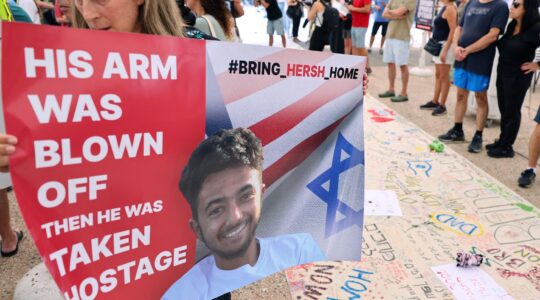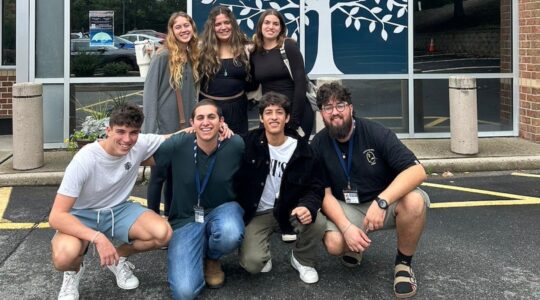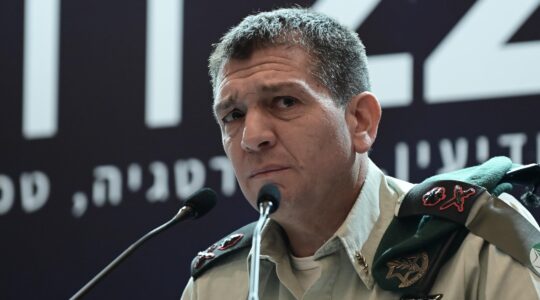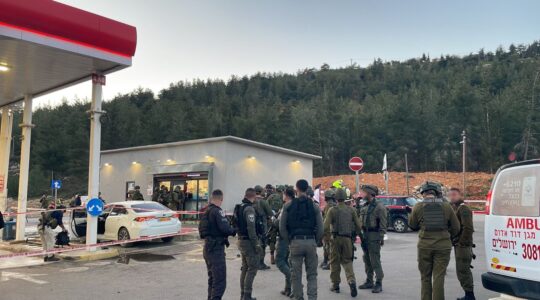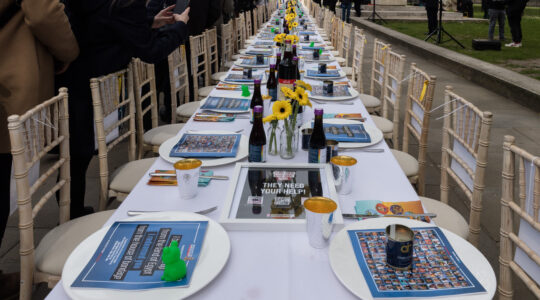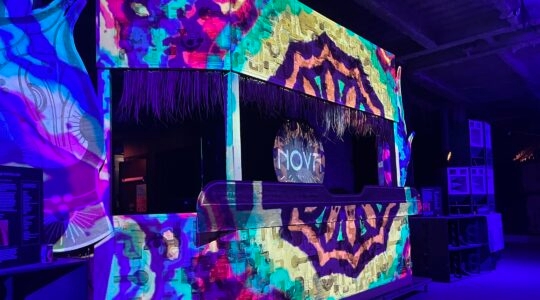NEW YORK (JTA) — Nomika Zion and Dr. Izzeldin Abuelaish first encountered one another near the end of Israel’s three-week military campaign in the Gaza Strip.
Both had been invited to share their thoughts on the conflict with the Jewish community of Pittsburgh via Internet hookup.
Zion, a mother from the besieged Israeli border town of Sderot, had gained national attention in Israel after publishing an essay warning that fervent support for the war was undermining the ability of Israelis “to see the other side, to feel, to be horrified, to show empathy.”
The next day Abuelaish, an obstetrician who for years had worked with Israeli hospitals, also would become a household name in Israel.
During a live TV broadcast in Israel, Abuelaish called one of the journalists on the air to report that Israeli forces had just fired on his Gaza home and killed three of his daughters and a niece. As a teary Israeli television journalist held his cell phone aloft, Abuelaish can be heard screaming for help.
“Suddenly, the Palestinian pain, which the majority of Israeli society doesn’t want to see, had a voice, had a face,” Zion said last week in New York, where she and Abuelaish shared a stage to receive the Niarchos Prize for Survivorship — an award presented annually by a Washington-based group called Survivor Corps that helps victims of war recover and rebuild their lives.
“The invisible became visible,” Zion said. “For one moment it wasn’t just the enemy — an enormous dark demon who is so easy and convenient to hate. There was one man, one story, one tragedy, and so much pain.”
Both sides of the Israeli-Palestinian divide have experienced much tragedy and pain. Yet while those on the front lines of the conflict often are the most strident, both Zion and Abuelaish have bucked the prevailing views of their surroundings.
Amid overwhelming support in Israel for the army’s Gaza operation in late December and January, Zion helped found Other Voice, a coalition of Israelis living in communities near the Gaza Strip who back a cessation of violence and greater cooperation with Palestinians. She calls herself “a lonely voice in the dark.”
And while some Palestinian leaders in Gaza called for Jewish blood following the Israeli operation, Abuelaish declined to join them even after the deaths of his daughters.
“Is it going to help me? Is it going to return my daughters? It will worsen the situation,” he told JTA after the awards ceremony. “We have to look forward.”
Abuelaish says he doesn’t know why he reacts so differently than many of his compatriots who have been hurt directly by Israeli firepower, but he suspects it may have something to do with his mother’s influence.
It is time for Middle Eastern women to “take the upper hand” in decision-making, he says, and Abuelaish is laying the groundwork for a new organization to empower them by supporting their health and education. Sen. Dianne Feinstein (D-Calif.) and journalist Christiane Amanpour both have agreed to join the board of the group, the Three Sisters Foundation, he said.
“If you train a man for fishing, he will eat alone,” Abuelaish said. “But if you train a mother or a woman, she will feed first the children, the husband. And if she has excess, she will give to the neighbors and to the community.”
A native of the Jabaliya refugee camp in Gaza, where he still lives, Abuelaish was educated at Gaza University, the University of London and Harvard, where he earned a master’s degree in public health. His view of the world is refracted through his medical training, which he says leads him to see all human beings as essentially the same.
“Revenge is a disease,” he said. “No one wants to be a disease. All of the people, I think, want to be healthy and be in good shape.”
Abuelaish’s views stand in stark contrast to that of another famous Gaza doctor, the late Abdel Aziz Rantisi, a pediatrician and top-ranking Hamas official who was killed by Israel in 2004. Rantisi once told a reporter he wouldn’t help an injured Jewish child.
I am “not in a position to judge,” Abuelaish said when asked about the differences between Rantisi and him.
Despite the loss of his three daughters and niece, Abuelaish refuses to abandon his coexistence work. Zion feels the same way, even as rockets continue to fall in Sderot.
“It’s our obligation to make our leaders talk, to compel them to tell us for a change a different story,” Zion said. “Maybe, one day, our voice will be heard.”
